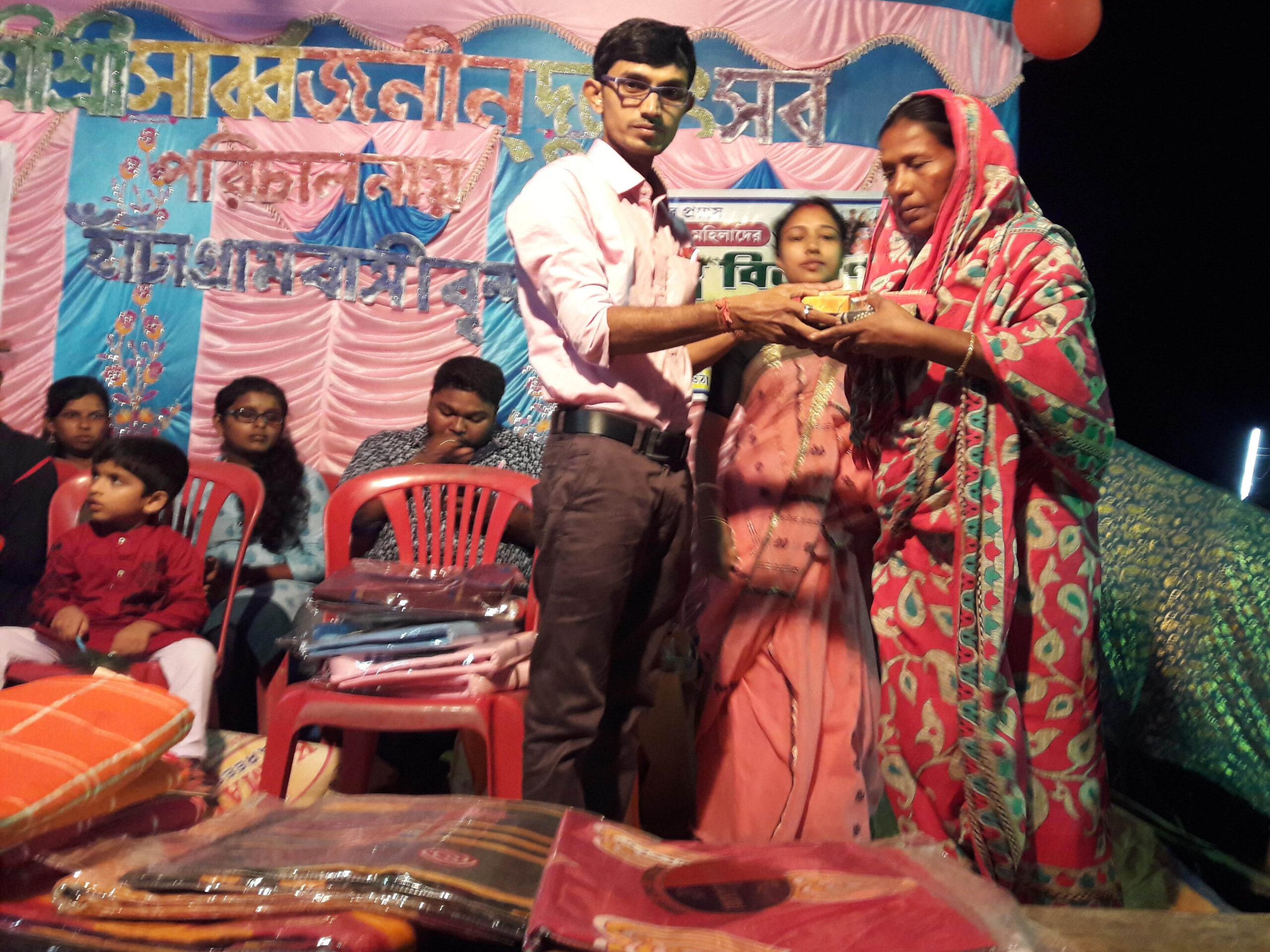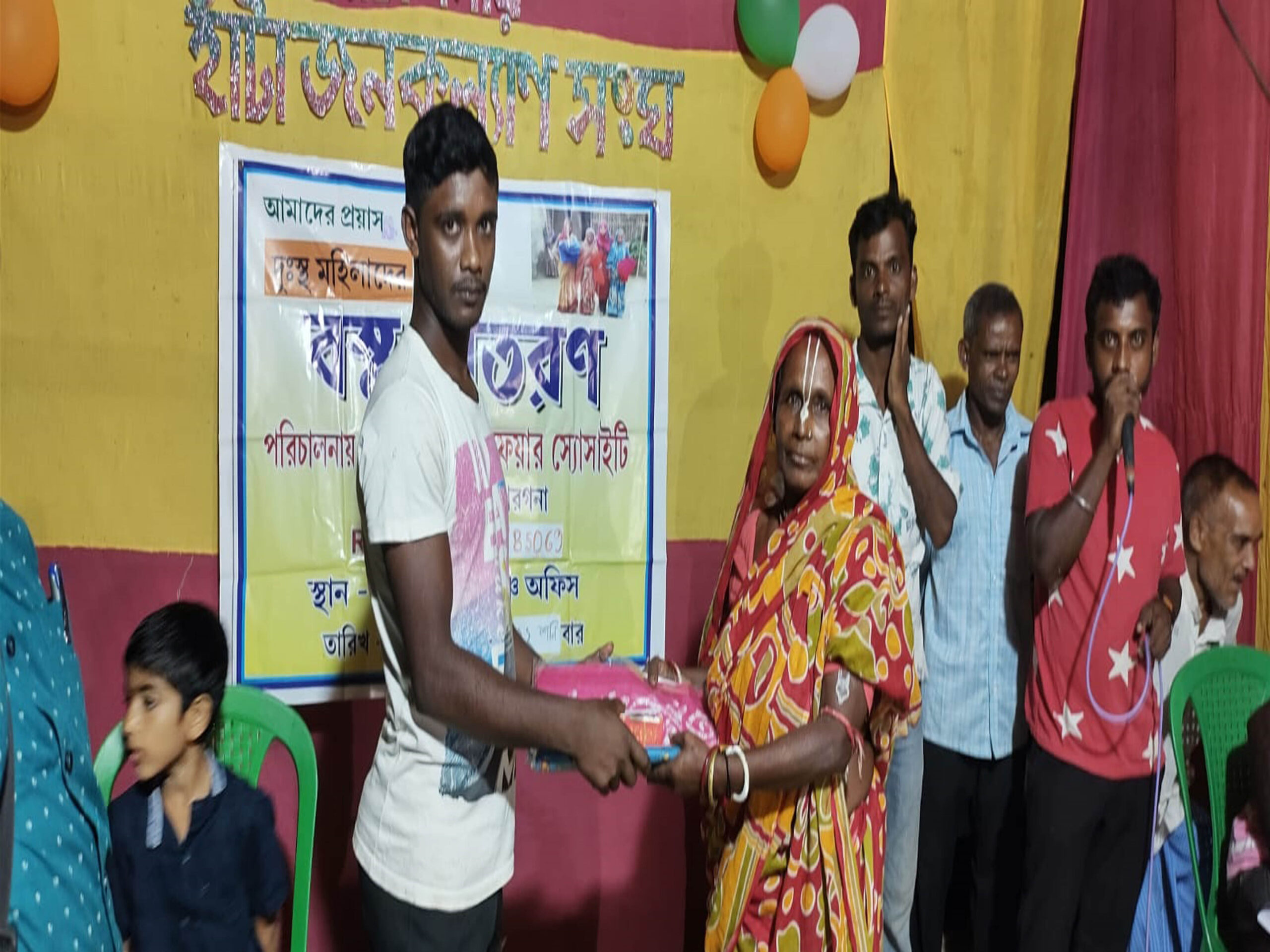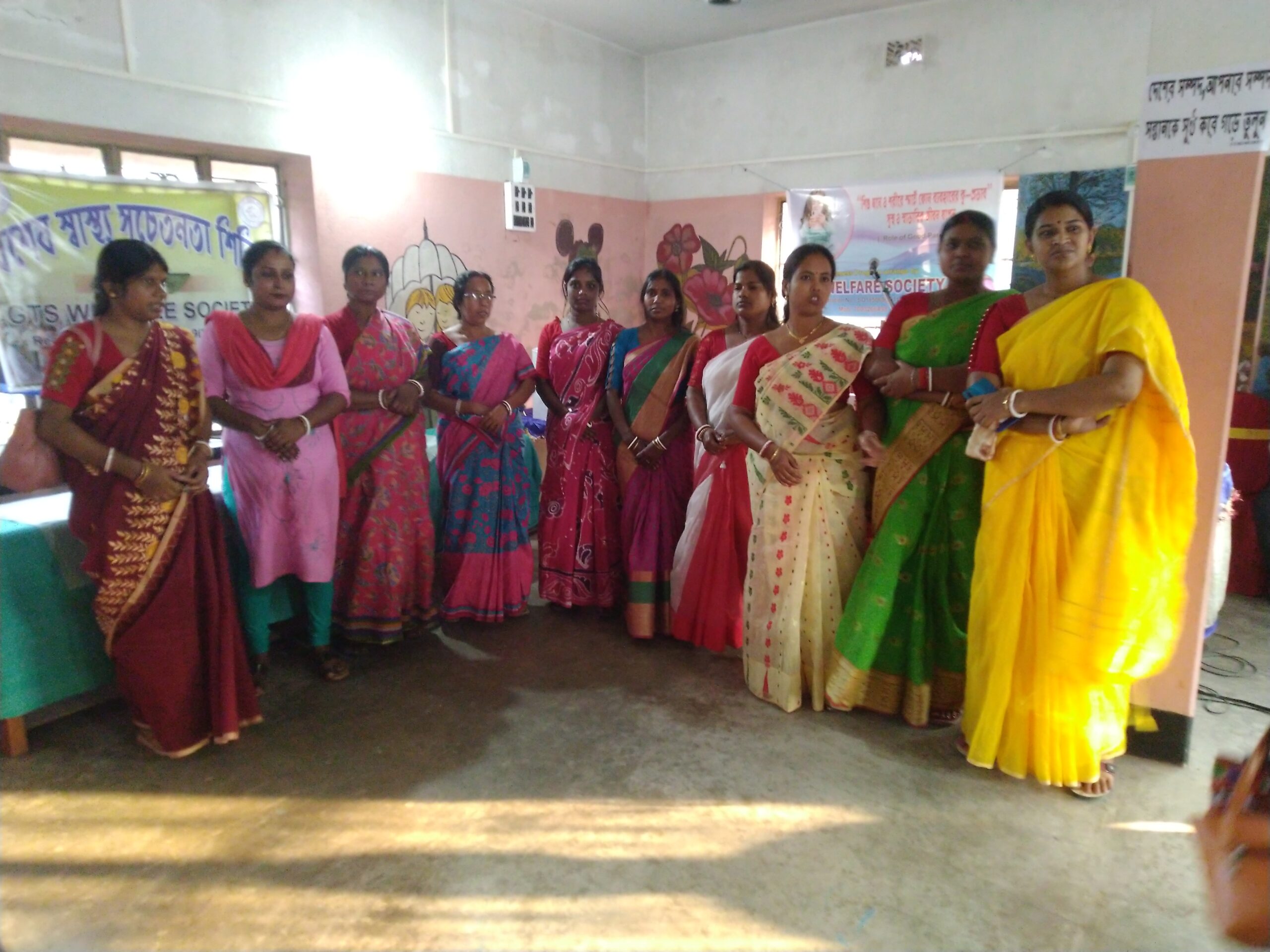What We Do
Our Work
MAA
Providing nutritious meals, such as balanced kits with protein, vitamins, and minerals. Meals could include items like lentils, fortified rice, beans, fruits, vegetables, dairy, and eggs.
Project : MAA
Distribute supplements like iron, calcium, and folic acid, which are crucial during pregnancy. Partner with local farms and food producers to source fresh, affordable, and culturally appropriate foods.
Khusir Box
Tailor meal plans to meet the specific dietary needs of individuals with different types of physical disabilities. some individuals may have difficulty chewing or swallowing, requiring softer, pureed, or blended food.
Project: 'Khusir Box'
Ensure that meals are nutrient-dense to meet the energy requirements of individuals who may have limited mobility, as they may burn fewer calories.
Cultural Motivation
Cultural motivation for an NGO is about incorporating and celebrating the diverse cultural identities, traditions, and values of the communities you serve while also ensuring that the NGO's activities and interventions resonate with local beliefs and practices.
Project: 'Ak Tukro Akash'
We can build trust, foster meaningful engagement, and improve the effectiveness of their initiatives. This approach ensures that the NGO is not just working in a community but is actively participating in its cultural ecosystem, respecting and promoting its social and cultural fabric.
Mahila Udyog
Encouraging women to take leadership positions in their businesses or community organizations is crucial. Offer training that builds confidence, communication skills, negotiation skills, and the ability to lead teams.
Project: 'Mahila Udyog' (Women Empowerment)
Equip women with basic business knowledge, including marketing, financial literacy, budgeting, product development, and customer service. Teach how to run and manage small-scale businesses effectively.
Vocational Training
Provide women with vocational training in various fields like tailoring, embroidery, weaving, handicrafts, food processing, beauty services, computer literacy, and more. Focus on skills that have demand in the local or broader markets.
Project: 'Vocational Training'
tart by conducting a needs assessment in the community to identify the most in-demand skills. This can be done through surveys, interviews, focus group discussions, or working with local businesses.
Ashraya
Ensure that elderly individuals have a safe, clean, and comfortable living environment. This could involve providing full-time residential care or temporary shelter based on the need.
Project: 'Smile 20'
Design the living spaces with accessibility in mind—wide doorways, ramps, non-slip floors, and accessible bathrooms to accommodate mobility aids (wheelchairs, walkers).
What We Care For!

Women's Empowerment through Self-Help Groups
We are committed to empowering women through the formation of Self-Help Groups, enabling them to take charge of their economic destinies.

Enhancing Rural Socio-Economic Development
We strive to uplift rural communities by facilitating the transfer of agricultural technology, thereby fostering sustainable socio-economic growth.

Facilitating Access to Government Facilities
We actively engage stakeholders to maximize the utilization and enjoying of government facilities, ensuring responsiveness to the needs of the community.

Healthcare Support for Vulnerable Individuals
We offer health checkups and support services for women, specially-abled children, and elderly individuals, prioritizing their physical and mental health.

Creating Awareness through Community Programs
We organize various community and social awareness programs to cultivate a favorable public opinion and promote social development initiatives.

Food Assistance for Families with Disabled Children
We provide food support to families with disabled children who come from economic disadvantaged backgrounds, ensuring their nutritional needs are met.
